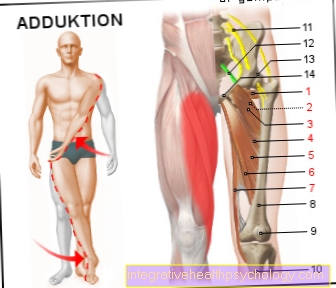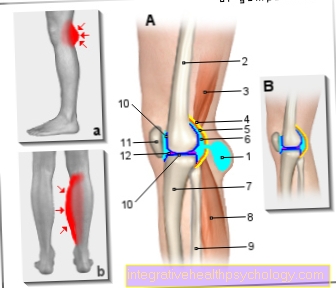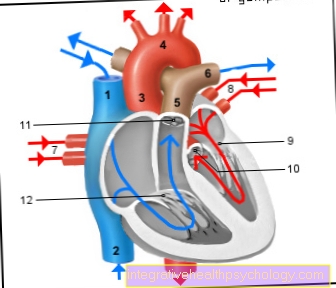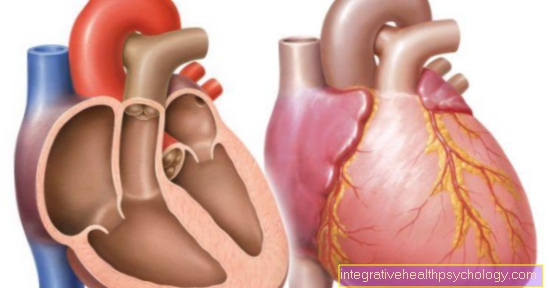Progressive systemic sclerosis
Synonyms
Scleroderma, systemic sclerosis
definition
Progressive systematic sclerosis is a rare systemic disease of the connective tissue in which there is an increase in connective tissue in the skin, blood vessels and internal organs. It is one of the collagenoses.
Epidemiology / frequency
With progressive systematic sclerosis, women are three times more likely to be affected than men, and the disease often manifests itself between the ages of 30 and 50. For every 100,000 inhabitants there are 6-25 cases per year.
Emergence
The emergence of the progressive systemic sclerosis is unknown. It is believed that an inflammation in the vessels is the trigger for the increased formation of connective tissue in the body.
Symptoms
It exists 2 forms of progressive systemic sclerosis:
In systemic scleroderma, the symptoms can be very variable:
- Edema (water retention) of the skin
- the skin is hard and tight, especially on the fingers
- as the disease progresses, the skin becomes thinner
In cutaneous scleroderma, what is known as "morphea" occurs, which means that the skin is changed like a scar.
Other organs in the body can also be affected. It comes to:
- Raynaud's syndrome of the fingers
- Arrhythmia of the heart
- Joint inflammation
- Renal failure
- cough
diagnosis
With the help of capillaroscopy (microscopic examination of the smallest vessels of the nail bed) and the detection of certain antibodies in the blood, the diagnosis of progressive systematic sclerosis can be made.
therapy
Both drugs that limit the inflammation and symptomatic measures such as keeping your fingers warm during Raynaud's syndrome are used. Also lymphatic drainage and physiotherapy are applied.
forecast
The cutaneous form has a good prognosis, while kidney involvement and a change in lung tissue (Pulmonary fibrosis) Represent limitations.





























